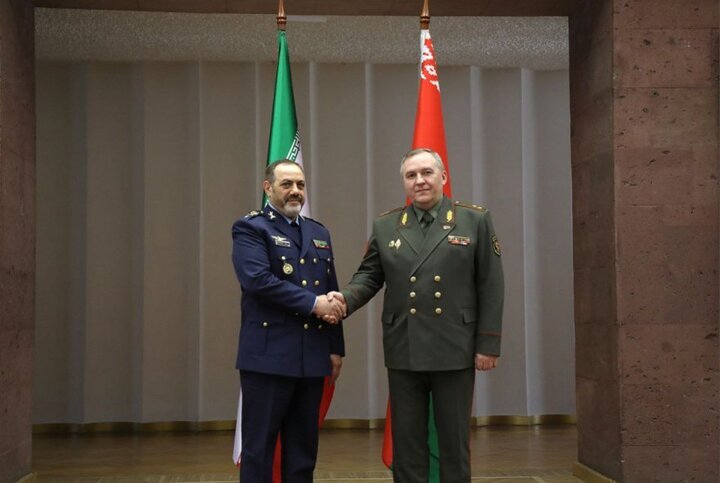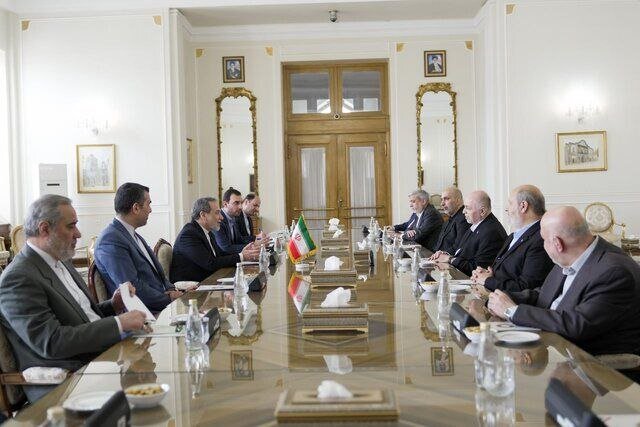Iran and Japan Forge Stronger Technological Partnership for Future Innovations
In a significant step towards enhancing bilateral relations, Iranian and Japanese officials have emphasized the importance of expanding technological cooperation, particularly in the realms of artificial intelligence (AI), digital economy, and sustainable communications infrastructure. This meeting, attended by Ehsan Chitsaz, the Deputy Minister for Information, Communications, and Technology (ICT) of Iran, and Imagwa Takuo, the Japanese Vice-Minister for International Affairs and Communications, took place in Tokyo on Wednesday, as reported by IRNA.
During their discussions, the officials explored various avenues to bolster collaboration, with a focus on key initiatives that could pave the way for a stronger digital partnership between the two nations. Here are some of the main topics covered during the meeting:
- Establishment of the Iran-Japan Digital Innovation Center: Aimed at fostering innovation and collaboration in digital technologies.
- Policy Development for Emerging Technologies: Cooperation on policymaking related to AI, big data, and platform regulation.
- Joint University Courses: Training experts in the digital economy through collaborative educational programs.
Takuo expressed Japan’s commitment to enhancing digital ties with Iran, noting that the country is pursuing a digital transformation that prioritizes local considerations and long-term benefits. He stated that Japan is fully prepared to implement cooperative projects based on Iran’s constructive proposals.
To ensure the effective implementation of the agreements reached during this meeting, both parties agreed to establish a joint executive working group. This group will be tasked with monitoring progress and facilitating ongoing dialogue between the two countries.
Status of ICT in Iran
The Ministry of Information and Communication Technology serves as the highest authority overseeing the ICT sector in Iran. All activities related to the information and communication technology industry are directly governed by this ministry, which plays a crucial role in shaping policies and plans aimed at optimizing ICT usage to enhance the quality of life for citizens.
One of the hallmarks of Iran’s technological advancement is the successful design, construction, and launch of satellites. This achievement not only demonstrates the nation’s growing technological and scientific capabilities but also highlights the role of space technology in promoting prosperity, peace, and economic progress across societies. Global engagement with space technology varies by nation, reflecting their respective capacities and efforts.
Currently, Iran boasts 13 universities and a research institute under the Ministry of Science, Research, and Technology that offer aerospace programs. This robust educational framework positions Iran as a regional leader in training specialists and experts in the aerospace sector.
Telecommunication Services in Iran
Access to telecommunication services in rural areas of Iran has markedly improved. As a result, the number of villages with communication services has surged to 52,182, which constitutes about 93 percent of all villages. Additionally, 47,837 villages now benefit from access to landline services.
According to the Communications Regulatory Authority (CRA), the number of mobile users in Iran has reached approximately 135.89 million, leading to a mobile phone penetration rate of 161.67 percent in the country. However, the adoption rate of fixed broadband internet has stagnated at just 14 percent, with nearly 11.92 million customers currently accessing the internet through these services.
This data indicates that fixed broadband internet growth has increased by less than 2 percent compared to the previous year, while mobile internet has seen a more robust growth of 10 percent. Notably, the expansion rate of mobile internet is five times that of fixed internet services.
In conclusion, the dialogue between Iran and Japan highlights a shared vision for advancing technological cooperation, particularly in areas that promise substantial benefits for both nations. As they work towards establishing a comprehensive framework for collaboration, the potential for growth in the digital economy and technological innovation remains significant.






